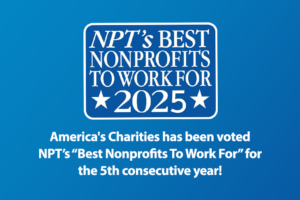Sarah Ford | December 22, 2014
How Corporate Philanthropy Improves a Troubled Reputation
By Ryan Scott
A new study by CR magazine highlights the bottom line burdens of a company’s bad reputation. In a survey titled The Cost of a Bad Reputation, CR revealed how difficult employee recruitment is for companies with negative reputations.
How difficult? According to the report:
**Candidates are reluctant to join organizations that have a bad reputation, and among those willing to join, a significant pay increase is needed as enticement.
**Companies with bad reputations face increased recruiting costs due to the greater difficulty to source, offer and on-board new hires.
**While recruiting expense increases are in the millions of dollars, this great expense is dwarfed by the billions of salary cost differential. The cost of recruiting and salaries added to any expense associated with a reputation damaged by environmental scandal, for example, can be disastrous to a company’s bottom line.
**Nearly three-quarters (72%) of people surveyed feel that it’s important to work for a company led by a CEO who prioritizes CR and/or environmental issues.
**Interestingly, women place an even higher priority on this than men, 75% vs. 69%, respectively.
**A CEO perceived to be active in CR and environmental issues has an impact on recruiting. This reputation should be maximized when building the employer brand or against competitors whose reputations may be weaker.
A strong CSR program isn’t a magic bullet that can right all corporate wrongs. But we already know that robust employee volunteer programs pay big dividends with employee recruitment, engagement and retention, not to mention community impact. So it makes sense that a company with a damaged reputation should pay particular attention to how it’s communicating its philanthropic goals to employees and authentically, fully engaging them in that mission.

Get Resources and Insights Straight To Your Inbox
Explore More Articles
For Fifth Consecutive Year America’s Charities Named ‘Best Nonprofit To Work For’
Washington, D.C. – April 1, 2025 – America’s Charities, the nonprofit that mobilizes the power of giving as a leading provider of volunteering, workplace giving,…
Read ArticleWorkplace Fundraising + Volunteering Summit (April 2nd and 3rd, 2025)
Join us in attending this virtual summit! The America’s Charities team is joining up with other leading voices in the workplace giving space for a…
Read ArticleThe Time to Act is Now
The results of the 2024 National Assessment of Educational Progress (NAEP) are in, and the findings are, in a word, heartbreaking. This assessment serves as…
Read ArticleGet Resources and Insights Straight To Your Inbox
Receive our monthly/bi-monthly newsletter filled with information about causes, nonprofit impact, and topics important for corporate social responsibility and employee engagement professionals, including disaster response, workplace giving, matching gifts, employee assistance funds, volunteering, scholarship award program management, grantmaking, and other philanthropic initiatives.




